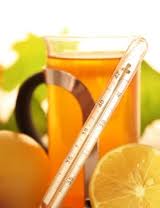World Malaria Day, 25 April 2014
The theme for 2014 and the coming years is: "Invest in the future. Defeat malaria."
Over the last decade, the world has made major progress in the fight against malaria. Since 2000, malaria mortality rates have fallen by more than 25%, and 50 of the 99 countries with ongoing transmission are now on track to meet the 2015 World Health Assembly target of reducing incidence rates by more than 75%.
Symptoms of malaria
Symptoms of malaria include fever and flu-like illness, including shivering, headache, muscle aches, and tiredness. Nausea, vomiting, and diarrhoea may also occur. Malaria may cause anaemia because of the loss of red blood cells.
Protection against Malaria
Mosquito nets are considered to be beneficial in preventing mosquito bites.
Wearing long clothing, can also provide protection against mosquito bites.
Using mosquito repellants that are readily available in the market can prevent malaria infection. However these mosquito repellants are widely known to be associated with allergic reactions, especially among sensitive individuals.
Dietary tips
There are no specific dietary suggestions to prevent the malaria infection; however there are certain dietary suggestions that can hasten recovery, especially after a malaria infection.
A clear liquid diet, free of milk, should be made to run for five to seven days, depending on how high a fever the person has. This is followed by a light bland nutrient dense diet like khicdi, daliya, oats, which helps in faster recovery, offering small frequent meals helps especially when the patient has poor appetite.
After this stage, the next stage consists of a balanced diet that still has fruit but now has seeds, grains and nuts and vegetables.
Some of the foods that need to be avoided when a person is trying to recover from malaria include coffee, strong tea, processed and refined foods, sauces, condiments, pickles papads, and sauces, refined sugar, products made with white flour, alcoholic beverages, and all meat products.
However their is something interesting,it has been found that a GOOD DIET CAN CHECK Malaria, Vitamin A, selenium and zinc can protect especially severe malaria.
Zinc deficiency has also been hypothesized to aggravate malaria because it is required in ensuring good immune response to infectious disease.
Vitamin A improves the absorption of iron in the intestine, thus helping to hasten the process of blood formation required in the fight against anaemia in infants as well as in pregnant women.
Selenium is vital to immune system function, low selenium levels can contribute to autoimmune problems.
Though there is yet the need for further researches to optimize the use of vitamin A and other micronutrients in the treatment of malaria, the researchers however recommend to everyone living in malaria endemic region a usual consumption of food sources of these micronutrients.








Africa is the nation where diseases are mostly prevalent and the rate of deaths because of diseases is high. You can also take help form the Goji Berry Juice if you want to live healthy life and disease free health as this will surely help you avoid falling ill.
ReplyDelete